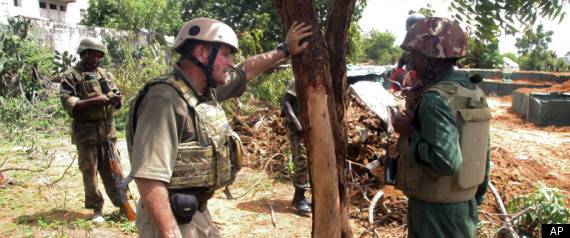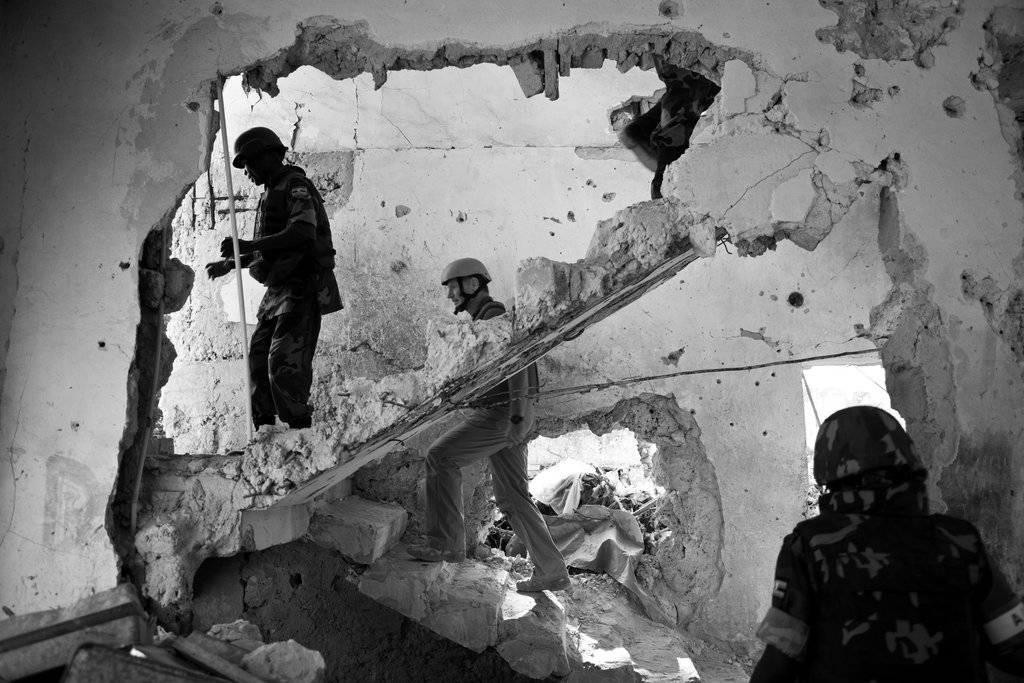Not sure how I feel about this.
Bancroft Global Development, U.S. Group, Advises African Troops In Somalia

Bancroft Global Development, U.S. Group, Advises African Troops In Somalia
Bancroft Global Development, U.S. Group, Advises African Troops In Somalia

MOGADISHU, Somalia On the front lines of Mogadishu's streets, Islamist militants battle African Union troops. Standing alongside the peacekeepers are members of an American-run team of advisers, former military men who play a little-known but key role in the war against al-Shabab.
Aside from covert raids by special operations forces, the U.S. government has not been involved militarily in Somalia since the intervention almost two decades ago that culminated in the Black Hawk Down battle. But a Washington-based company has been quietly working in one of the world's most dangerous cities to help an AU peacekeeping force protect the Somali government from al-Qaida-linked Islamist insurgents.
While troops struggle to get control of this shattered capital that has been filling with refugees fleeing famine in southern Somalia, The Associated Press got rare access to the military advisers, providing a first look into their work.
The men employed by Bancroft Global Development live in small trailers near Mogadishu's airport but often go into the field. It's dangerous work two Bancroft men were wounded last month.
Among the advisers are a retired general from the British marines, an ex-French soldier involved in a coup in Comoros 16 years ago, and a Danish political scientist.
Funded by the United Nations and the U.S. State Department, Bancroft has provided training in a range of military services, from bomb disposal and sniper training to handing out police uniforms.
Michael C. Stock, the American head of Bancroft, said his men share information with the FBI about bomb materials and the DNA of suicide bombers, who sometimes turned out to be Somali-American youths from the Midwest. Stock said his company receives no recompense for sharing information with the FBI.
Stock strongly objects if "mercenary" is used to describe his men. Instead he describes Bancroft as a non-governmental organization dedicated to finding permanent solutions to violent conflict. His men say they are trying to stabilize a country ravaged by 20 years of civil war and now a famine estimated to have killed 29,000 children in the past three months.
"We take calculated risks to be side by side with our protegees," said Stock, who visits Mogadishu only intermittently and for short periods of time, believing it is best not to have Americans working in Mogadishu. "It gives us credibility with them. They know we know what we are talking about."
At their beach-side camp in Mogadishu, diplomats, journalists and aid workers swap tip-offs by the bar. Stories fly through the air faster than the bats that hunt in the shadows, a way to unwind after a day of tense work.
Bancroft Global Development, U.S. Group, Advises African Troops In Somalia




